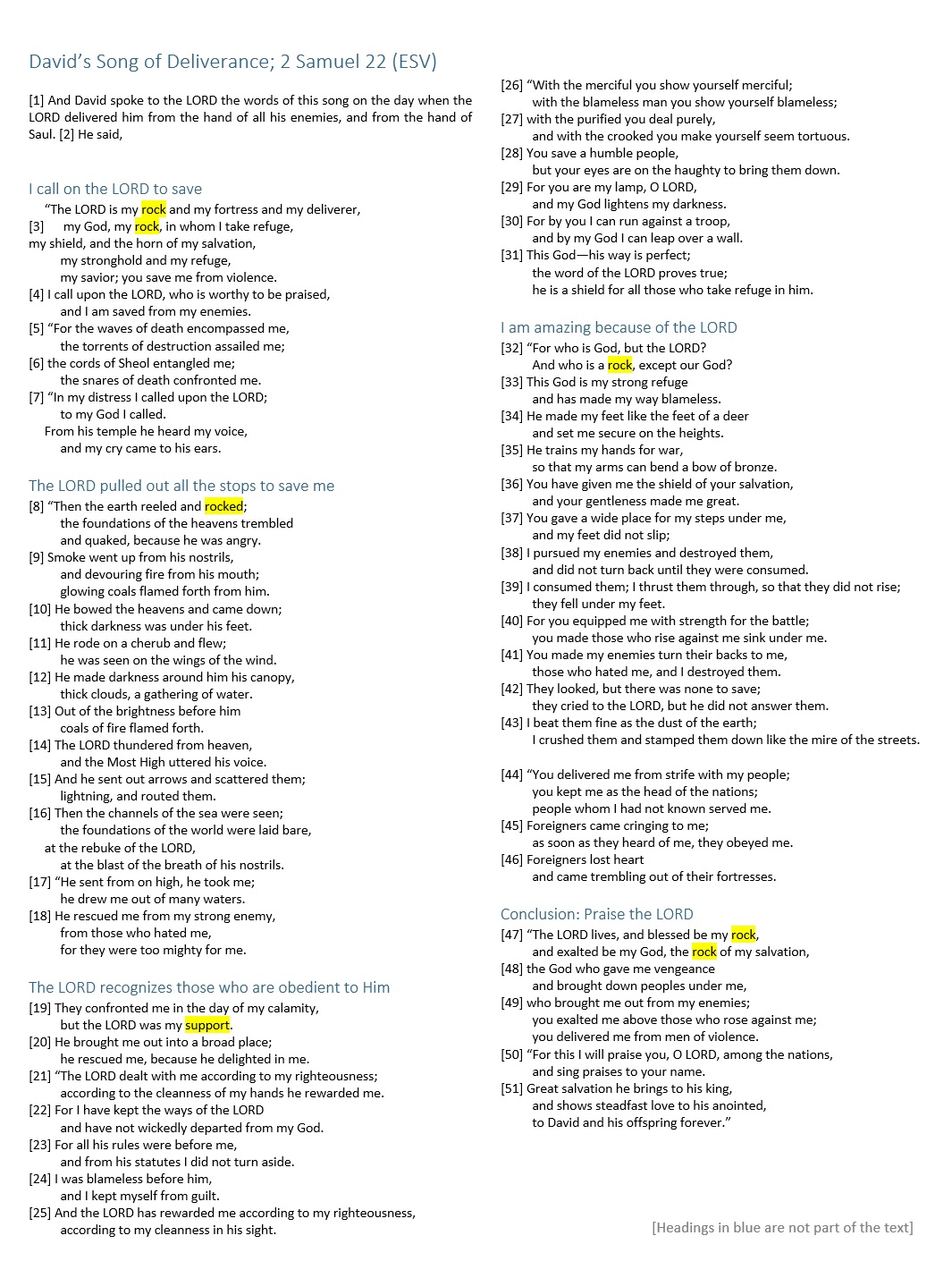In short
This is nearly identical to Psalm 18. David praises God.
Why it is important
It is one of the more famous poems; you might recognize the words from “I Will Call upon the LORD.”
What is in this poem
“David spoke to the LORD the words of this song on the day when the LORD delivered him from the hand of all his enemies, and from the hand of Saul” (2Sa 22:1).
Again, this is in that section of 2 Samuel that is not chronological, so although the chapter is at the end of the book, it seems to belong more at the very beginning, right after Saul dies.
The theme is, “God is my rock.” I divided this up into five sections that all begin with something rock-like (see picture). With verse 8, I am capitalizing on the ESV translation that says “rocked”, and verse 19, I am going off that word “support,” which reminds me of the wise man who built his house….
Verses 8-18 are fantastic, like one of those epic disaster movies, illustrating the LORD charging out of heaven to save David.
Many verses come off arrogantly on David’s part, but his point is very valid: we can do amazing things when God is on our side, and that happens when we obey Him very diligently.
Theology and doctrine
David was, of course, far from perfect, but he said these words before the sin with Bathsheba. So, when he says, “I have kept the ways of the LORD, and have not wickedly departed from my God” (v. 22), that’s a little more believable given the timeline.

Footnote
The differences between 2 Samuel 22 and Psalm 18 are subtle. Most are extremely minor (adding the word “and,” for example), but some are a little more interesting, like verse 8 where “heavens” becomes “mountains” in Psalm 22:7.
I attached a file if you really want to explore this.

No responses yet